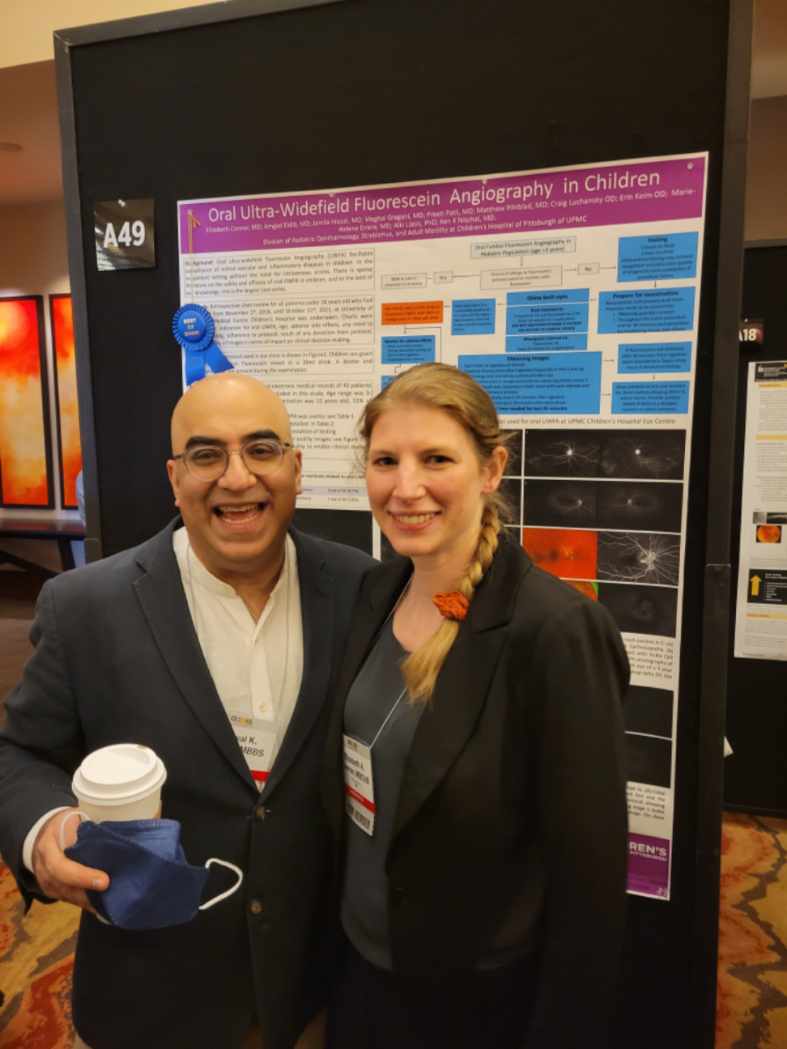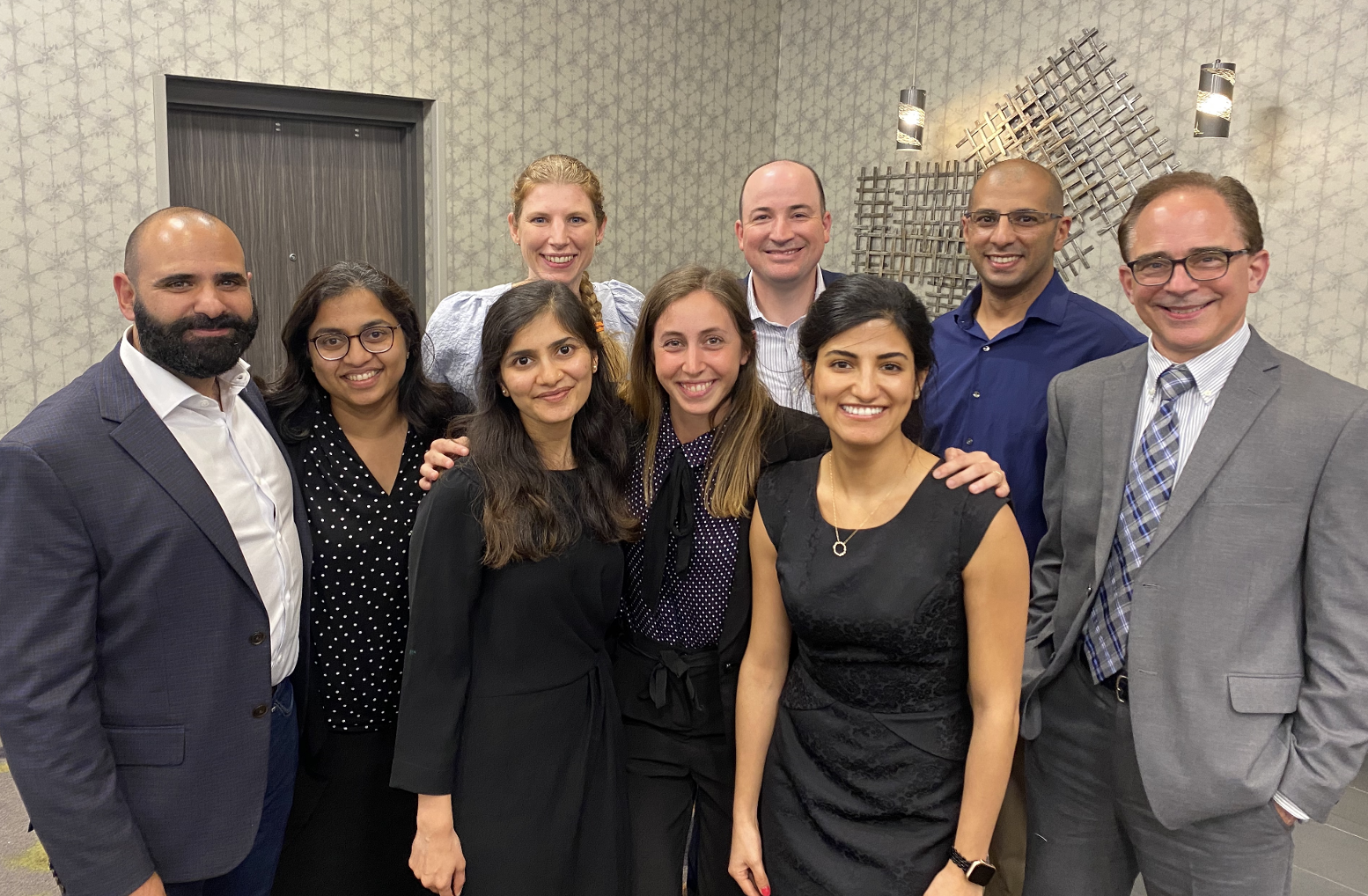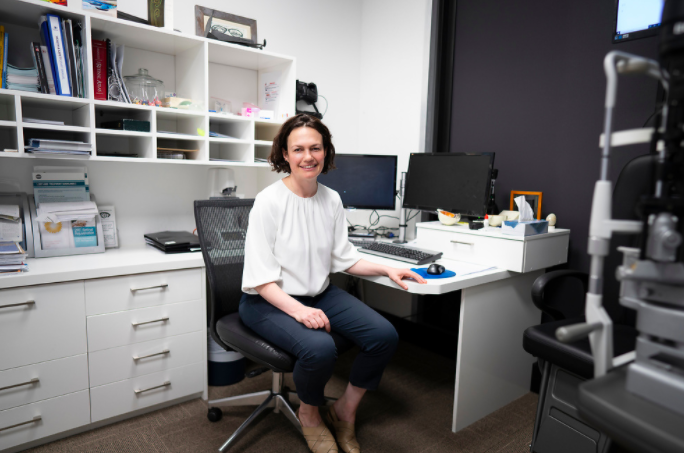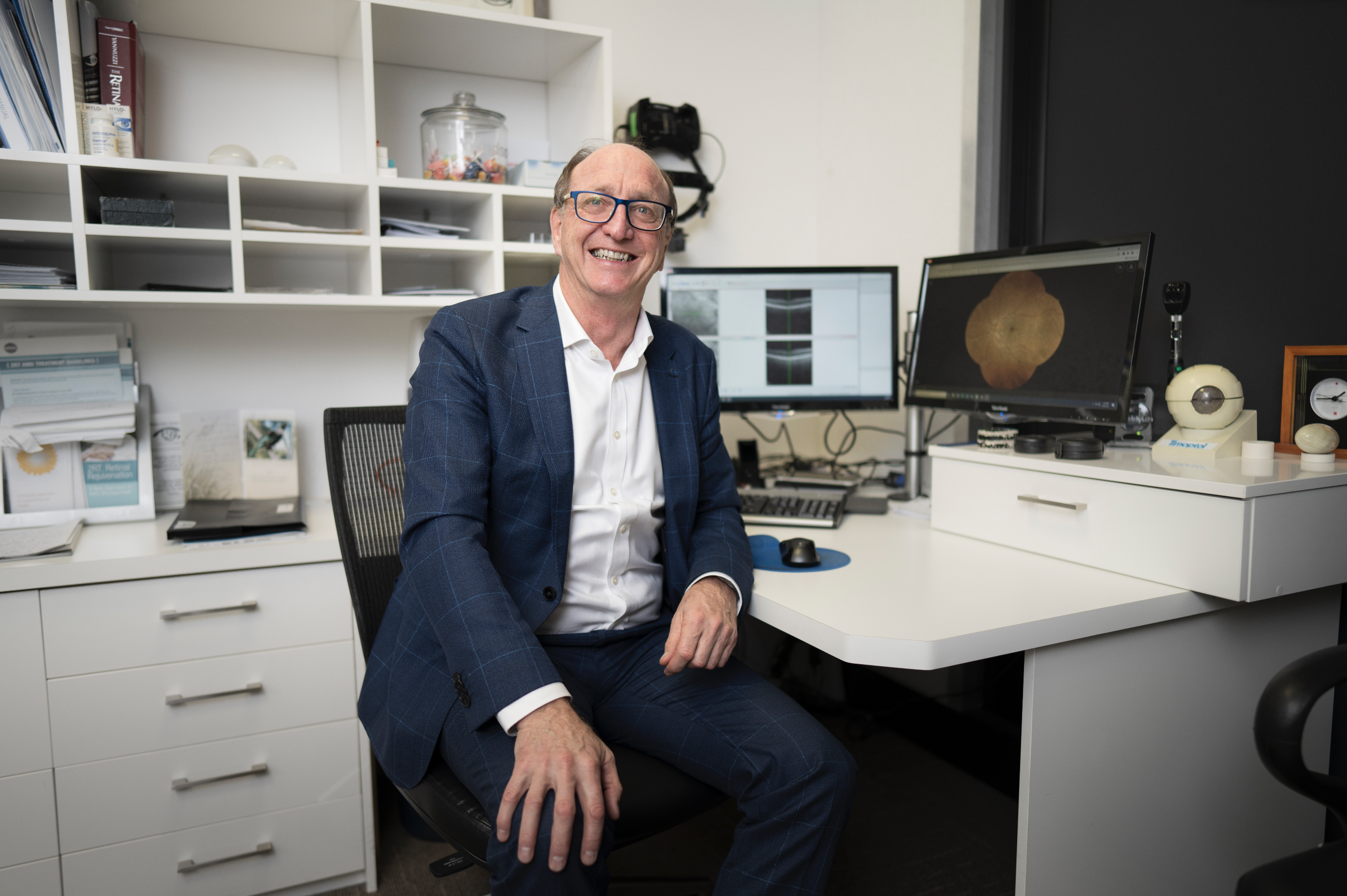Dr Elizabeth Conner
Paediatric ophthalmologist,
anterior segment, cataract surgeon
MBChB, BMedSci, FRANZCO
After a fellowship at the Children’s Hospital of Pittsburgh, Dr Elizabeth Conner returned to New Zealand in 2022 and joined the Southern Eye Specialists team.
Here she provides her expertise to regular cataract and corneal surgery, and specialises in the diagnosis and treatment of genetic conditions, pediatric eye disease and strabismus. Dr Conner has had extensive involvement with the New Zealand Medical Students Association, and with Dr Rawstron has been making use of the new refractive laser at Southern Eye Specialists, an additional area of work she is enjoying.
The point of view
While most New Zealanders were staying close to home, Dr Elizabeth Conner spent 2021 completing a fellowship at the University of Pittsburgh. It was an invaluable opportunity that has provided the ophthalmologist with unique experience and a wealth of knowledge – expertise she now brings to her busy days here at Southern Eye Specialists.
Liz grew up in Wellington and spent her childhood summers (and a number of wet winter weekends) in the Wairarapa. A simple article about an Auckland paediatrician formed the impetus for Elizabeth to plan a career in medicine.
“It was about a woman working as a paediatrician in South Auckland, making house calls to families who were unable to bring their children into the clinic,” says Elizabeth. “She was changing lives. Reading the article changed mine.”
After deciding to study at the University of Otago, her focus evolved towards ophthalmology. In 2010, she furthered her medical studies with a BMedSci research degree in the management of diabetic eye disease. Upon graduating she began her training as ophthalmologist in Christchurch with the Royal Australian and New Zealand College of Ophthalmologists. Her training took her to Nelson and then to Auckland.
Since then, she has taken on two fellowships .The first was at Christchurch Public Hospital, where she practised alongside Dr Mark Elder, Dr John Rawstron and Dr Antony Bedggood. More recently she travelled to the University of Pittsburgh Medical Centre (UPMC) Children’s Hospital of Pittsburgh, where she worked with Professor Ken K Nischal, Dr Matthew Pihblad, and their team
The level of expertise in Pittsburgh was a big reason behind her family’s move to the States.
“Professor Nischal is most well-known for his research and clinical management of anterior segment dysgenesis (congenital corneal opacities, paediatric cataracts, paediatric glaucoma),” she says.
“Their team also includes three ocular geneticists – so I was able to learn a lot about ocular genetics while I was there. It’s this knowledge that will be able to enhance the standard of care I can now provide.”

“While it (the fellowship) was certainly challenging, both getting over there and in the job itself, it was all incredibly worthwhile. It has certainly changed the shape of my career.”
Travelling to the USA was an incredible opportunity for her career. There was plenty to consider before making the move however, particularly during so much global upheaval.
Fortunately, it proved a rewarding and happy time for the entire family. Elizabeth and her husband took the opportunity to travel to Alaska and Colorado with their three children.
“Getting to hike up to glaciers, sleep in a remote cabin, and see bald eagles up close was incredible,” she says.
“We had a lot of time with my husband’s family, which was very special for us and the kids. They got to know their grandparents in a way that Facetime and brief holidays just don’t match up to.”
As with any big move overseas, stress can be kept to minimum with the help of a welcoming community.
“We had neighbours in our street who made us feel like locals,” Elizabeth says. “And the team I worked with at UPMC welcomed my family with open arms. We were invited to all sorts of occasions. We got to share everything from a movie night on an inflatable screen in the backyard to Diwali, Holi and an Easter Egg hunt.”

“While it (the fellowship) was certainly challenging, both getting over there and in the job itself, it was all incredibly worthwhile. It has certainly changed the shape of my career.”
Returning to New Zealand, Elizabeth says it almost feels like they never left.
“I have slipped back into work and am busy catching up with friends. We missed most of the Covid outbreak here and things are returning to normal very quickly,” she says.
When not working, Elizabeth loves spending time with her three young children, who are “hilarious, healthy and always active it seems”. She also takes an annual trip with friends to the Queenstown half marathon, which provides her with plenty of motivation to stay fit throughout the year. As a big travel fan, she is now looking forward to visiting Malaysia, where she will present at the Asia-Pacific Academy of Ophthalmology.
Despite all the excitement of the past year, Elizabeth is resolutely focused on the future of her practice here in Christchurch.
“We have been able to share our workload more and more, working alongside nurses to give anti-VEGF injections and do corneal cross linking for keratoconus, and having optometrists co-manage glaucoma.”
After nearly a decade in practice, her passion for the work, and for improving the lives of children, has only grown. So too has her list of specialisations, which now include corneal and cataract surgery, strabismus, and ocular genetic conditions. The expertise provides a sound knowledge base to her aspiration.
“I’d really like to be able to offer South Islanders the best ophthalmic care possible and to help build on what is already available here. That’s everything from the level of public health initiatives, such as access to myopia care and glasses subsidies, to management of rare conditions – which involve a high level of technically advanced care.”
From advancements in technologies such as telemedicine, to changes in the way medical professionals work together, Elizabeth is passionate about the positive developments in her field.
“I was able to help in the first corneal cross-linking procedures at Christchurch Hospital back in 2013 when I was a registrar. This has now become a standard of care in keratoconus, which has made a meaningful difference to many lives already.”
“We have been able to share our workload more and more, working alongside nurses to give anti-VEGF injections and do corneal cross linking for keratoconus, and having optometrists co-manage glaucoma,” she says.
“I was able to help in the first corneal cross-linking procedures at Christchurch Hospital back in 2013 when I was a registrar. This has now become a standard of care in keratoconus, which has made a meaningful difference to many lives already.”
Elizabeth is also excited by the advancements in the creation of regenerative tissues, such as corneal stem cell transplants. “This will be a game changer for patients with corneal disease,” she says.
“In terms of myopia control in children, the results of the LAMP (Low-Concentration
Atropine for Myopia Progression) study in 2021 are quite clear. We now need to ensure screening for myopia – and that access to atropine eye drops are available to all children in New Zealand.”
Based on this research (and wearing both ‘doctor’ and ‘mum’ hats), Elizabeth has some clear advice for parents.
“If you have children with myopia, or those who might be at risk, please do not let them read in dim light, ask them not to sit too close to phone or laptop screens, and ensure they get at least two hours of natural light a day,” she says.
“It also pays to ensure their school has well-lit classrooms. These lifestyle changes alone may prevent them from having a lifetime of difficulty with their eyes!”
Thinking back to her own days as a teenager, would she consider any other career? “Honestly, I don’t know,” she replies. “I love what I do and I haven’t really considered any other options since starting university 20 years ago. The work is too interesting and rewarding to consider anything else.”

